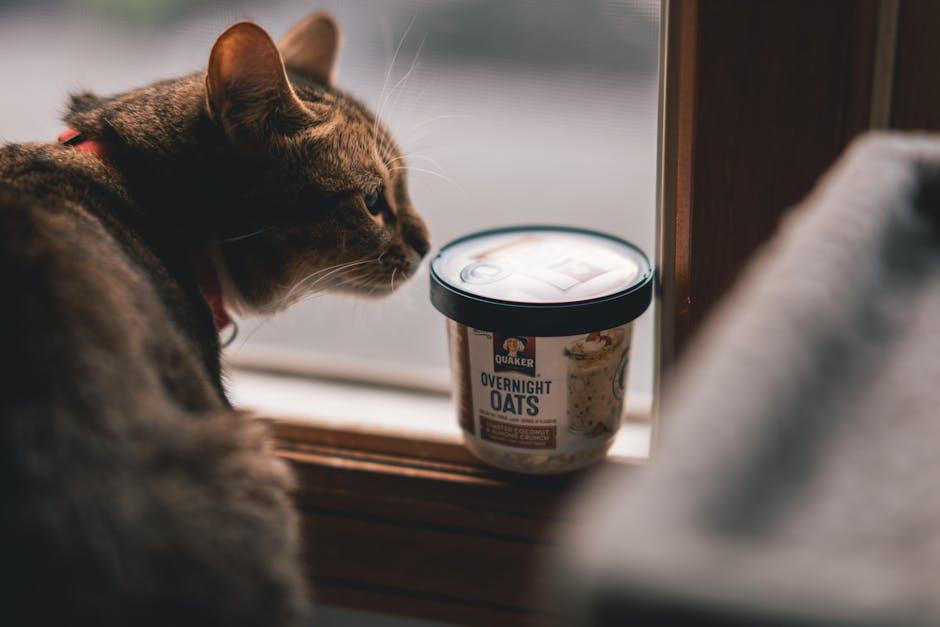In the world of pet care, where our furry companions are as cherished as family, a new culinary debate simmers: grain-free diets. Are they the golden key to our pets’ vitality or simply a clever marketing mirage? As we delve into this intriguing topic, we aim to untangle the truths from the trends, offering a comforting guide for pet owners seeking clarity. Join us on this journey as we explore whether these diets truly nourish our beloved animals or merely feed into our latest obsessions.
Understanding the Grain-Free Craze: Fact or Fad?
In recent years, the grain-free movement has swept through pet food aisles, promising a more natural diet for our furry friends. But is it all it’s cracked up to be? The allure often lies in the perception that grain-free equals healthier. Many pet owners choose these diets hoping to avoid allergies or improve digestion. However, it’s crucial to understand the nuances. Some pets may indeed benefit from grain-free options, particularly if they have specific sensitivities. Yet, for the average pet, grains can be a valuable source of fiber and essential nutrients.
Consider the following when evaluating grain-free diets for your pet:
- Individual Needs: Just like humans, every pet is unique. What works for one might not work for another.
- Veterinary Guidance: Consulting with a vet can provide insights tailored to your pet’s health and lifestyle.
- Ingredient Quality: Whether grain-free or not, the quality of ingredients matters more than the absence of grains.
Ultimately, while grain-free diets might not be the miracle solution for every pet, they aren’t merely a marketing gimmick either. A thoughtful approach, guided by expert advice, ensures that your pet’s diet truly supports their well-being.

Nutritional Insights: What Your Pet Really Needs
In recent years, grain-free diets have gained significant attention among pet owners. Many believe these diets offer a more natural feeding option, aligning closer with what a pet might consume in the wild. However, is this trend truly beneficial, or is it driven more by clever marketing strategies? The truth lies somewhere in between. While some pets with specific allergies or sensitivities may benefit from a grain-free diet, it’s essential to understand that grains can also be a valuable source of nutrients, including fiber, vitamins, and minerals. Thus, a well-balanced diet, whether it includes grains or not, should be tailored to the individual needs of your furry companion.
- Potential Benefits: May aid pets with grain allergies.
- Considerations: Not all grain-free diets are created equal; some may lack essential nutrients.
- Advice: Consult with your veterinarian to ensure your pet’s diet meets their specific health needs.

Spotting the Signs: Is Grain-Free Right for Your Pet?
Understanding whether a grain-free diet is suitable for your pet involves observing subtle cues in their health and behavior. While some pets thrive on grain-free diets, others might not experience the same benefits. Look for improvements in areas like:
- Digestive Health: Notice if there’s less bloating, gas, or irregular bowel movements.
- Skin and Coat Condition: Check for reduced itching, flaking, or a shinier coat.
- Energy Levels: Monitor any increase in playfulness or stamina during activities.
Conversely, it’s essential to be vigilant for any negative signs that might indicate the diet isn’t the best fit:
- Weight Changes: Unexpected weight gain or loss can be a red flag.
- Behavioral Shifts: Increased lethargy or irritability might suggest dietary issues.
- Allergic Reactions: New or worsening allergies could indicate the need for a dietary reassessment.
Consulting with your veterinarian can provide valuable insights tailored to your pet’s unique needs and help you decide if a grain-free diet is the right choice.

Expert Tips: Making Informed Choices for Furry Friends
When navigating the world of pet nutrition, the grain-free diet often pops up as a popular choice. But is it truly beneficial, or merely a marketing trend? The debate continues, but there are some expert tips to consider that can help you make an informed decision for your furry friend.
- Understand Your Pet’s Needs: Each pet is unique, and their dietary needs can vary. While some pets may benefit from a grain-free diet due to specific allergies, others might not need it at all.
- Consult a Veterinarian: Before making any dietary changes, it’s crucial to consult with a veterinarian. They can provide tailored advice based on your pet’s health history and nutritional requirements.
- Read Labels Carefully: Not all grain-free foods are created equal. Check the ingredient list for quality protein sources and balanced nutrients.
- Watch for Marketing Hype: Just because a label says “grain-free” doesn’t mean it’s the best option. Evaluate the overall nutritional profile rather than relying solely on buzzwords.
By considering these tips, you can make a more informed choice that prioritizes your pet’s health and happiness.


































